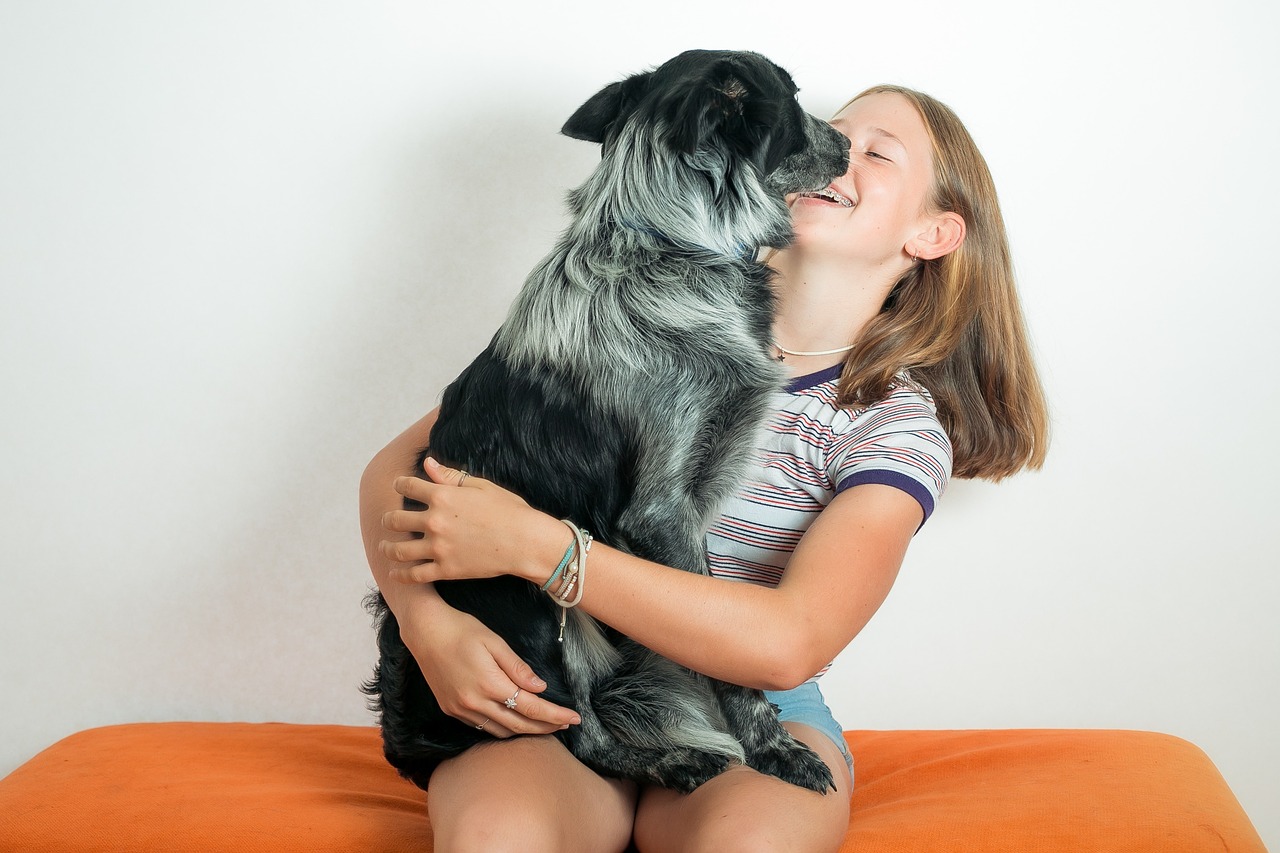This article delves into the benefits of acupuncture for dogs, explaining its mechanisms, and offering practical tips for locating qualified practitioners in your vicinity.
What is Acupuncture for Dogs?
Acupuncture for dogs is a holistic treatment that involves the insertion of fine needles into specific points on a dog’s body. This ancient practice aims to promote healing, relieve pain, and improve overall well-being. Pet owners are increasingly turning to this alternative therapy as a complement to traditional veterinary care.
How Does Acupuncture Work for Dogs?
The mechanism behind acupuncture lies in its ability to stimulate the dog’s nervous system. When needles are inserted at specific points, they can trigger the release of endogenous opioids and enhance blood circulation. This process not only alleviates pain but also supports the body’s natural healing processes.
What Conditions Can Acupuncture Treat in Dogs?
- Arthritis
- Hip Dysplasia
- Neurological Disorders
- Post-Surgical Recovery
- Chronic Pain Conditions
Acupuncture can be particularly beneficial for dogs suffering from these conditions, providing pain relief and improving their quality of life.
Is Acupuncture Safe for Dogs?
Generally, acupuncture is considered safe for dogs when performed by a trained professional. However, it is crucial to discuss any potential risks or contraindications with your veterinarian beforehand to ensure your pet’s safety.
How to Find a Qualified Acupuncturist for Your Dog?
Finding a qualified acupuncturist involves:
- Checking credentials and certifications
- Seeking recommendations from veterinarians or other pet owners
- Verifying experience with canine patients
These steps will help ensure that your dog receives safe and effective treatment.
What Should You Expect During an Acupuncture Session?
During an acupuncture session, your dog will be assessed to determine the most appropriate treatment plan. Needles will be inserted at specific points, and sessions typically last between 30 to 60 minutes, depending on the dog’s condition and response to treatment.
How Many Acupuncture Sessions Does a Dog Need?
The number of required sessions varies based on the individual dog’s condition and response to treatment. Many dogs start with weekly sessions, which may taper off as improvement is noted.
Can Acupuncture Be Combined with Other Treatments?
Yes, acupuncture can be effectively integrated with other treatment modalities, such as physical therapy, medication, and nutritional counseling. This holistic approach can enhance overall treatment outcomes.
What Do Pet Owners Say About Acupuncture for Dogs?
Many pet owners report positive experiences, noting significant improvements in their dogs’ mobility, pain relief, and overall well-being. Testimonials can offer valuable insights into the effectiveness of acupuncture.
Are There Any Risks or Side Effects of Acupuncture?
While acupuncture is generally safe, some dogs may experience mild side effects such as temporary soreness or fatigue. Being aware of these risks allows pet owners to make informed decisions regarding their dog’s care.
How Much Does Acupuncture for Dogs Cost?
The cost of acupuncture sessions can vary widely based on location and the practitioner’s experience. It’s essential for pet owners to budget for this treatment as part of their dog’s health care plan.
How to Prepare Your Dog for an Acupuncture Session?
Preparing your dog for an acupuncture session involves ensuring they are calm and comfortable. Familiarizing them with the treatment environment can help reduce anxiety and enhance the overall experience.

What is Acupuncture for Dogs?
Acupuncture for dogs is an ancient practice rooted in Traditional Chinese Medicine that has been adapted for our canine companions. This innovative treatment involves the insertion of fine needles into specific points on a dog’s body, known as acupuncture points. The primary goal is to promote healing, relieve pain, and restore balance within the body. As pet owners increasingly seek holistic treatment options, acupuncture is gaining traction as a viable alternative or complement to conventional veterinary care.
The benefits of acupuncture for dogs extend beyond mere pain relief. By stimulating the nervous system, acupuncture can enhance the release of endogenous opioids, which are natural painkillers produced by the body. This process not only alleviates discomfort but also improves blood circulation, facilitates tissue repair, and supports the body’s innate healing mechanisms. Many dogs experience a reduction in anxiety and an overall improvement in their quality of life following treatment.
- Arthritis: A common ailment in older dogs, acupuncture can significantly reduce joint pain and inflammation.
- Hip Dysplasia: This condition can cause severe discomfort, and acupuncture may help manage pain and improve mobility.
- Neurological Disorders: Conditions such as intervertebral disc disease can benefit from acupuncture, helping to alleviate symptoms and enhance recovery.
- Post-Surgical Recovery: Acupuncture can expedite healing and reduce pain after surgery, making it an excellent adjunct therapy.
Generally, acupuncture is considered safe when performed by a qualified professional. However, it is crucial for pet owners to consult with a veterinarian before starting treatment. This ensures that any underlying health issues are addressed and that acupuncture is appropriate for the dog’s specific condition. Potential side effects, though rare, may include temporary soreness or fatigue.
Finding a qualified acupuncturist involves several steps:
- Check for certifications and training in veterinary acupuncture.
- Seek recommendations from your veterinarian or fellow pet owners.
- Verify their experience with canine patients to ensure your dog receives the best care.
During an acupuncture session, your dog will be carefully assessed to determine the best treatment plan. The practitioner will insert needles at specific points, which may cause minimal discomfort. Sessions typically last between 30 to 60 minutes, depending on the dog’s condition and response to treatment. Many dogs find the process relaxing, and some may even fall asleep!
The number of acupuncture sessions required varies based on the individual dog’s condition and their response to treatment. Many dogs benefit from an initial series of weekly sessions, with the frequency tapering off as improvements are noted. A tailored treatment plan will be developed in consultation with the acupuncturist.
Yes, acupuncture can be effectively combined with other therapies, such as physical therapy, medications, and nutritional counseling. This integrative approach can enhance treatment outcomes and provide a comprehensive care plan for your dog.
Many pet owners report positive experiences with acupuncture, highlighting significant improvements in their dogs’ mobility, pain relief, and overall well-being. Testimonials often emphasize the holistic benefits of acupuncture and its role in enhancing their pets’ quality of life.
While acupuncture is generally safe, it’s essential to be aware of potential side effects. Mild soreness or fatigue may occur after a session, but these effects are typically temporary. Understanding these risks can help pet owners make informed decisions regarding their dog’s care.
The cost of acupuncture sessions can vary significantly based on location and the practitioner’s experience. Pet owners should budget for this treatment as part of their dog’s overall health care plan, considering it a valuable investment in their pet’s well-being.
Preparing your dog for an acupuncture session involves ensuring they are calm and comfortable. Familiarizing them with the treatment environment can help reduce anxiety, making the experience more enjoyable for both the pet and the owner.

How Does Acupuncture Work for Dogs?
Acupuncture is an ancient healing practice that has gained traction in veterinary medicine, particularly for dogs. Understanding how acupuncture works can help pet owners appreciate its benefits and make informed decisions about their furry companions’ health.
Acupuncture for dogs involves the insertion of fine needles into specific points on the body, known as acupoints. This process stimulates the nervous system, leading to a cascade of physiological responses. When needles are placed in these acupoints, they trigger the release of endorphins, which are the body’s natural painkillers. These endorphins help to alleviate discomfort and promote a sense of well-being in dogs.
Moreover, acupuncture enhances blood circulation throughout the body. Improved blood flow not only helps deliver essential nutrients to tissues but also aids in the removal of metabolic waste. This is particularly important for dogs recovering from injury or surgery, as it accelerates the healing process.
Another significant aspect of acupuncture is its ability to modulate the immune system. By stimulating specific acupoints, acupuncture can help balance the immune response, making it beneficial for dogs with chronic conditions or those undergoing treatments like chemotherapy. This holistic approach supports the body’s natural healing mechanisms, allowing dogs to recover more effectively.
In addition to pain relief and improved circulation, acupuncture can also help with stress reduction. Many dogs experience anxiety, whether due to changes in their environment or health issues. The calming effects of acupuncture can help reduce stress levels, leading to a more relaxed and comfortable pet.
Furthermore, acupuncture is known to be effective for various conditions in dogs, including:
- Arthritis
- Hip dysplasia
- Neurological disorders
- Post-surgical recovery
Pet owners often report noticeable improvements in their dogs’ mobility and overall quality of life after acupuncture treatments. This holistic therapy complements traditional veterinary care, making it an appealing option for many.
While acupuncture is generally considered safe when performed by a qualified practitioner, it is essential for pet owners to consult with their veterinarian before starting treatment. This ensures that acupuncture is a suitable option for their dog’s specific health needs.
In summary, acupuncture works by stimulating the nervous system, releasing endorphins, enhancing blood circulation, and modulating the immune system. This multifaceted approach not only alleviates pain but also supports the body’s natural healing processes, making it a valuable treatment option for dogs facing various health challenges.

What Conditions Can Acupuncture Treat in Dogs?
Acupuncture has emerged as a valuable treatment option for various health issues in dogs. This ancient practice, rooted in traditional Chinese medicine, offers a holistic approach to healing by addressing the underlying causes of discomfort and promoting overall well-being. In this section, we will explore the specific conditions that acupuncture can effectively treat in dogs, helping pet owners understand how this alternative therapy can benefit their furry companions.
- Arthritis: One of the most common conditions treated with acupuncture, arthritis can cause significant pain and inflammation in dogs. Acupuncture helps by reducing inflammation and promoting joint mobility, often resulting in improved quality of life for arthritic dogs.
- Hip Dysplasia: This genetic condition affects the hip joint’s formation and can lead to pain and mobility issues. Acupuncture can alleviate pain and improve joint function, allowing dogs with hip dysplasia to move more comfortably.
- Neurological Disorders: Conditions such as intervertebral disc disease or degenerative myelopathy can severely impact a dog’s mobility and quality of life. Acupuncture works by stimulating the nervous system, potentially improving nerve function and reducing pain associated with these disorders.
- Post-Surgical Recovery: After surgery, many dogs experience pain and discomfort. Acupuncture can aid in pain management and accelerate the healing process by enhancing blood circulation and promoting tissue repair.
- Allergies: Dogs suffering from allergies often experience skin irritations and discomfort. Acupuncture can help alleviate these symptoms by balancing the immune system and reducing inflammation.
- Digestive Issues: Conditions like inflammatory bowel disease or chronic vomiting can be distressing for both dogs and their owners. Acupuncture can help regulate digestive function and reduce discomfort associated with these conditions.
- Behavioral Issues: Anxiety and stress can manifest in various behavioral problems in dogs. Acupuncture can promote relaxation and calmness, helping to address issues such as separation anxiety or fear of loud noises.
Understanding these conditions can empower pet owners to make informed decisions regarding their dog’s health. Acupuncture is not a one-size-fits-all solution, and its effectiveness can vary depending on the individual dog and the specific condition being treated. However, many pet owners have reported significant improvements in their dogs’ well-being after incorporating acupuncture into their treatment plans.
It is crucial for pet owners to consult with a qualified veterinarian before starting acupuncture treatments. A veterinarian can provide a comprehensive evaluation of the dog’s health and determine if acupuncture is a suitable option. Additionally, they can recommend a certified acupuncturist who specializes in veterinary care.
In conclusion, acupuncture offers a promising alternative for addressing various health conditions in dogs. By understanding the potential benefits and applications of acupuncture, pet owners can take proactive steps to enhance their dog’s health and quality of life.

Is Acupuncture Safe for Dogs?
When considering acupuncture for dogs, many pet owners often ask, “Is acupuncture safe for my dog?” This holistic treatment method, which involves the insertion of fine needles into specific points on a dog’s body, is generally regarded as safe when performed by a qualified professional. However, understanding the potential side effects and contraindications is essential for making an informed decision about your dog’s health.
Acupuncture works by stimulating the nervous system, which can lead to the release of endogenous opioids and other neurotransmitters. This process not only helps alleviate pain but also enhances the body’s natural healing mechanisms. While the procedure is typically well-tolerated, it is crucial to ensure that it is conducted by a licensed veterinarian or a certified veterinary acupuncturist who understands canine anatomy and physiology.
Before proceeding with acupuncture, it is advisable to have a thorough consultation with your veterinarian. They can help identify any contraindications specific to your dog’s health condition. For instance, dogs with bleeding disorders or those on anticoagulant medications may require special considerations. Additionally, certain acute conditions may not be suitable for acupuncture treatment.
While most dogs experience minimal side effects, such as mild soreness or temporary fatigue following a session, it’s important to monitor your pet closely. If any unusual symptoms arise, such as excessive lethargy or changes in behavior, it is vital to contact your veterinarian promptly. Understanding these potential risks allows pet owners to make more informed decisions about their dog’s treatment plan.
In summary, acupuncture is a generally safe and effective treatment option for dogs when performed by trained professionals. However, discussing any concerns with your veterinarian beforehand can help ensure the best possible outcome for your furry friend. Always prioritize your dog’s health and well-being by seeking qualified practitioners and being aware of any potential risks associated with this holistic therapy.

How to Find a Qualified Acupuncturist for Your Dog?
Finding a qualified acupuncturist for your dog is a crucial step in ensuring they receive safe and effective treatment. With the growing popularity of acupuncture as a holistic approach to pet care, it is essential to navigate the selection process carefully. Here are some key strategies to help you in your search:
- Check Credentials: Start by verifying the acupuncturist’s credentials. Look for practitioners who are licensed veterinarians with additional training in veterinary acupuncture. Organizations such as the International Veterinary Acupuncture Society (IVAS) and the American Academy of Veterinary Acupuncture (AAVA) provide certification programs that ensure practitioners meet specific standards.
- Seek Recommendations: One of the best ways to find a trustworthy acupuncturist is through recommendations. Speak with your veterinarian, as they may have referrals to qualified specialists. Additionally, pet owner communities, both online and offline, can provide valuable insights based on personal experiences.
- Verify Experience with Canine Patients: Not all acupuncturists have the same level of experience with dogs. Inquire about their experience treating canine patients specifically. A practitioner who has worked extensively with dogs will be more familiar with their unique anatomy and health needs.
- Read Reviews and Testimonials: Look for reviews and testimonials from other pet owners. Websites and social media platforms can provide a wealth of information about the experiences of others. Positive feedback can indicate a practitioner’s effectiveness and approachability.
- Schedule a Consultation: Once you have narrowed down your options, consider scheduling a consultation. This allows you to meet the acupuncturist in person, discuss your dog’s specific health issues, and gauge the practitioner’s approach and demeanor. A good practitioner will take the time to answer your questions and explain the treatment process.
- Assess the Clinic Environment: The clinic should be clean, welcoming, and equipped for animal care. Observe how the staff interacts with pets and their owners. A friendly and compassionate environment can significantly enhance your dog’s experience.
- Discuss Treatment Plans: During your consultation, ask about the proposed treatment plan. A qualified acupuncturist should be able to explain how many sessions may be needed, what to expect during each session, and how they plan to monitor your dog’s progress.
By following these guidelines, you can feel confident in your choice of acupuncturist for your dog. Remember, the goal is to ensure your furry friend receives the best possible care, leading to improved health and well-being.

What Should You Expect During an Acupuncture Session?
When considering acupuncture for your dog, it is essential to understand what to expect during an acupuncture session. This holistic treatment can be an effective way to alleviate pain and promote healing in your furry friend. Below, we delve deeper into the intricacies of an acupuncture session for dogs, ensuring that pet owners are well-informed and prepared.
During an acupuncture session, your dog will undergo a comprehensive assessment by a qualified practitioner. This initial evaluation is crucial as it helps the acupuncturist understand your dog’s specific health issues and tailor the treatment accordingly. The assessment may include:
- Observation: The practitioner will observe your dog’s posture, movement, and behavior.
- Medical History: A discussion about your dog’s medical background and any current medications.
- Physical Examination: A thorough examination to identify areas of discomfort or concern.
Once the assessment is complete, the acupuncturist will identify the specific acupuncture points to target. These points, known as meridians, are located throughout your dog’s body and correspond to various organs and systems. The practitioner will insert fine, sterile needles into these points to stimulate healing.
Sessions typically last between 30 to 60 minutes, depending on your dog’s individual condition and their response to treatment. The acupuncturist may leave the needles in place for about 10 to 30 minutes, allowing your dog to relax and benefit from the therapy. Many dogs find the experience soothing, often lying down comfortably during the session.
It is important to note that while some dogs may show immediate signs of relief, others might require a few sessions before noticeable improvements are observed. The acupuncturist will discuss a suitable treatment plan, which may involve multiple sessions over several weeks.
Throughout the session, your dog’s comfort and safety are the top priorities. Practitioners are trained to monitor your dog’s reactions closely, adjusting the treatment as necessary. If your dog appears anxious or uncomfortable, the acupuncturist will take steps to alleviate their stress, ensuring a positive experience.
After the session, it is common for dogs to exhibit signs of relaxation or increased energy. Some may even feel a little tired, which is completely normal. Owners should provide a calm environment for their pets to rest and recover. Additionally, the acupuncturist may offer post-session care tips to maximize the benefits of the treatment.
In summary, an acupuncture session for your dog is a carefully structured process that involves assessment, targeted treatment, and ongoing monitoring. Understanding what to expect can help alleviate any concerns and ensure a smooth experience for both you and your dog. As always, consult with your veterinarian before starting any new treatment to ensure it aligns with your dog’s health needs.

How Many Acupuncture Sessions Does a Dog Need?
Understanding how many acupuncture sessions your dog may need is crucial for effective treatment. The number of sessions required can significantly vary based on several factors, including the specific condition being treated and the individual response of your dog. This article will delve deeper into the factors influencing the frequency and duration of acupuncture treatments for dogs.
Initially, many dogs may benefit from a series of treatments. Typically, practitioners recommend starting with weekly sessions for the first few weeks. This frequency allows for consistent stimulation of the body’s healing processes and can lead to noticeable improvements in your dog’s condition. For instance, dogs suffering from chronic pain, such as arthritis, often show significant progress with regular acupuncture.
As treatment progresses, the frequency of sessions may be adjusted. Once your dog begins to show signs of improvement, your acupuncturist may suggest tapering off the sessions. This could mean transitioning to bi-weekly or even monthly visits, depending on how well your dog is responding to the treatment. It’s essential to monitor your dog’s progress closely and communicate any changes to your acupuncturist.
Another critical factor is the nature of the condition. For acute conditions or injuries, the need for frequent sessions may be higher, while chronic conditions may stabilize with less frequent visits. For example, a dog recovering from surgery might require more intensive treatment initially, followed by a gradual reduction in sessions as healing progresses.
Moreover, individual responses to acupuncture can vary widely among dogs. Some may experience immediate relief, while others might take longer to respond. Factors such as age, overall health, and the presence of other medical issues can influence how quickly a dog responds to acupuncture. Therefore, it’s essential to have realistic expectations and remain patient during the treatment process.
In summary, while many dogs benefit from a structured series of acupuncture treatments starting with weekly sessions, the exact number and frequency of sessions will depend on the dog’s specific condition and individual response. Regular assessments by a qualified acupuncturist will help determine the best course of action for your pet. Always consult with your veterinarian to create a comprehensive treatment plan that includes acupuncture as part of your dog’s overall health care strategy.
By understanding these factors, pet owners can make informed decisions about their dog’s acupuncture treatment and ensure they receive the best possible care.

Can Acupuncture Be Combined with Other Treatments?
Acupuncture is increasingly recognized as a valuable treatment option for dogs, providing relief from various ailments and enhancing overall well-being. One of the most compelling aspects of acupuncture is its ability to be effectively combined with other treatment modalities. This integrative approach can significantly improve the outcomes for dogs suffering from a range of conditions.
Acupuncture can be harmoniously integrated with several other treatment options, including:
- Physical Therapy: When combined with acupuncture, physical therapy can enhance mobility and strength in dogs recovering from surgery or injury. The synergy between these treatments can lead to more effective rehabilitation.
- Medication: Acupuncture can be used alongside conventional medications to manage pain and inflammation. This combination can sometimes allow for lower dosages of drugs, minimizing potential side effects.
- Nutritional Counseling: A well-rounded approach to your dog’s health may include dietary adjustments. Acupuncture can help improve digestion and metabolism, making nutritional changes more effective.
The integration of acupuncture with other therapies can lead to a more comprehensive treatment plan. By addressing multiple aspects of a dog’s health, pet owners may observe:
- Improved Pain Management: Acupuncture stimulates the release of endorphins, which can reduce pain perception. When combined with medications, dogs may experience greater relief.
- Faster Recovery: Post-surgical dogs or those recovering from injuries often benefit from the dual action of acupuncture and physical therapy, leading to quicker healing times.
- Enhanced Quality of Life: By addressing both physical and nutritional needs, pet owners can see significant improvements in their dog’s overall health and happiness.
While combining acupuncture with other treatments can be beneficial, it is essential for pet owners to consider the following:
- Consultation with Professionals: Always discuss treatment plans with a veterinarian or a certified canine acupuncturist. They can provide guidance on the best combinations for your dog’s specific needs.
- Monitoring Responses: Keep a close eye on how your dog responds to combined treatments. Adjustments may be necessary based on their reactions and progress.
- Holistic Approach: Consider the overall health of your dog. A holistic approach that includes acupuncture, physical therapy, and proper nutrition can lead to lasting benefits.
Utilizing an integrative approach to your dog’s treatment can yield numerous benefits:
- Comprehensive Care: Addressing multiple health aspects can lead to more effective treatment plans tailored to individual needs.
- Reduced Reliance on Medications: Combining therapies can sometimes lessen the need for pharmaceutical interventions, reducing the risk of side effects.
- Increased Engagement: By being involved in your dog’s treatment process, you can foster a deeper bond and understanding of their health needs.
In conclusion, the combination of acupuncture with other treatments such as physical therapy, medication, and nutritional counseling can create a powerful integrative approach to your dog’s health. This method not only enhances treatment outcomes but also promotes a holistic view of your pet’s well-being. Always consult with qualified professionals to determine the best course of action for your furry friend.

What Do Pet Owners Say About Acupuncture for Dogs?
Acupuncture has emerged as a popular holistic treatment for dogs, and many pet owners have shared their experiences regarding its effectiveness. In this section, we delve into what pet owners say about acupuncture for dogs, focusing on their testimonials and the noticeable benefits they have observed.
Numerous pet owners express positive experiences with acupuncture, highlighting various benefits such as:
- Improved Mobility: Many dogs suffering from conditions like arthritis or hip dysplasia have shown remarkable improvements in their ability to move freely after undergoing acupuncture treatments.
- Pain Relief: Pet owners frequently report a significant reduction in their dogs’ pain levels, allowing them to engage in activities they previously struggled with.
- Enhanced Overall Well-Being: Beyond physical improvements, many owners notice a boost in their dog’s mood and overall demeanor, contributing to a better quality of life.
Testimonials from pet owners provide valuable insights into the effectiveness of acupuncture:
"After just a few sessions, my dog, who had been limping for months, started running around like a puppy again. The change was astounding!" - Sarah, Dog Owner
"My senior dog was in constant pain due to arthritis. Since starting acupuncture, he seems much more comfortable and even plays with his toys again!" - Mark, Dog Owner
These testimonials reflect a broader trend among pet owners who have turned to acupuncture as a complementary therapy. Many have found it to be a valuable addition to their dog’s healthcare regimen, especially when traditional treatments alone did not yield satisfactory results.
While anecdotal evidence is compelling, it’s also important to consider that scientific studies support the benefits of acupuncture. Research indicates that acupuncture can:
- Stimulate the release of endorphins, the body’s natural painkillers.
- Improve blood circulation, which aids in healing and reduces inflammation.
- Enhance the nervous system’s function, promoting overall health and wellness.
Online forums and social media groups dedicated to pet health frequently feature discussions about acupuncture. Pet owners share their stories, tips, and recommendations for finding qualified practitioners. This sense of community adds to the growing acceptance of acupuncture as a legitimate treatment option.
As more pet owners report success with acupuncture, it continues to gain traction within the veterinary community. The combination of personal stories and scientific research underscores the potential of acupuncture to improve the lives of dogs suffering from various ailments. If you’re considering this treatment for your pet, consult with a qualified veterinarian to explore the best options for your dog’s specific needs.

Are There Any Risks or Side Effects of Acupuncture?
Acupuncture is a holistic treatment option that has gained popularity among pet owners seeking alternative therapies for their dogs. While it is generally regarded as a safe practice, it is crucial for pet owners to understand the potential risks and side effects associated with this treatment. This knowledge can empower owners to make informed decisions about their dog’s health and well-being.
Before considering acupuncture for your dog, it’s important to consult with a veterinarian who can assess your pet’s specific health needs. Acupuncture is typically considered safe when performed by a qualified and trained professional. However, as with any medical treatment, there are some potential side effects to be aware of.
- Temporary Soreness: Some dogs may experience mild soreness at the site of needle insertion. This is usually short-lived and resolves quickly.
- Fatigue: After an acupuncture session, dogs might feel a bit tired or lethargic. This is a normal response as their bodies begin to heal.
- Emotional Reactions: Dogs can also exhibit changes in behavior, such as increased anxiety or restlessness, especially if they are not accustomed to the treatment environment.
While rare, there are some serious risks associated with acupuncture that pet owners should consider:
- Infection: If the needles are not properly sterilized, there is a risk of infection. Always ensure that your acupuncturist follows strict hygiene protocols.
- Pneumothorax: Incorrect needle placement, particularly in the chest area, can lead to a pneumothorax, which is a serious condition requiring immediate medical attention.
- Worsening Symptoms: In some cases, dogs may initially experience a temporary worsening of their symptoms before improvement occurs. This is often referred to as a “healing crisis.”
To minimize the risks associated with acupuncture, consider the following tips:
- Choose a Qualified Practitioner: Ensure that the acupuncturist is certified and has experience working with dogs. Ask about their training and credentials.
- Consult Your Veterinarian: Discuss your dog’s health history with your veterinarian before starting acupuncture. They can provide valuable insights and recommendations.
- Monitor Your Dog: After each session, observe your dog for any unusual behavior or symptoms. Report any concerns to your veterinarian or acupuncturist.
Understanding the potential risks and side effects of acupuncture can help pet owners make informed decisions regarding their dog’s care. While the benefits of acupuncture can be significant, it is essential to weigh these against the possible risks. By doing so, you can ensure that your dog receives the best possible treatment tailored to their unique needs.
In conclusion, acupuncture can be a valuable therapeutic option for dogs, but awareness of the associated risks is paramount. By consulting with qualified professionals and monitoring your dog’s response to treatment, you can enhance their overall health and well-being while minimizing potential side effects.

How Much Does Acupuncture for Dogs Cost?
When considering acupuncture for your dog, one of the most pressing questions pet owners have is, “How much does acupuncture for dogs cost?” The cost of acupuncture sessions can vary significantly based on several factors, including location, practitioner experience, and the specific needs of the dog.
In general, the price range for acupuncture sessions for dogs can fall anywhere between $50 to $150 per session. In metropolitan areas or regions with a higher cost of living, you may find that prices lean towards the upper end of this spectrum. Conversely, in smaller towns or rural areas, costs might be lower. It’s essential for pet owners to understand that while the initial investment might seem high, the potential benefits of acupuncture can lead to long-term health improvements for their furry companions.
Another critical factor influencing the cost is the experience and qualifications of the acupuncturist. A practitioner with extensive training and a solid track record may charge more for their services. However, choosing a highly qualified professional is crucial, as they can provide the safest and most effective treatment for your dog. Always seek out practitioners who have specific training in veterinary acupuncture and are certified by recognized organizations.
Moreover, the condition being treated can also impact the overall cost. For instance, dogs with chronic conditions might require more frequent sessions, which can add up over time. Many veterinarians recommend an initial series of treatments, often starting with weekly sessions, before tapering off as the dog’s condition improves. This approach not only maximizes the effectiveness of the treatment but also helps pet owners budget accordingly.
Additionally, pet owners should consider potential follow-up visits or maintenance sessions, which might be necessary after the initial treatment phase. These follow-up appointments can vary in cost but are typically less expensive than the initial sessions.
It’s also worth noting that some pet insurance plans may cover acupuncture treatments, especially if they are deemed medically necessary. Pet owners should check with their insurance providers to determine what services are covered and if acupuncture is included in their plan. This can significantly alleviate the financial burden associated with ongoing treatments.
When budgeting for acupuncture, pet owners should also factor in any additional costs, such as travel expenses to reach a qualified practitioner or any supplementary therapies that may be recommended alongside acupuncture.
In conclusion, while the cost of acupuncture for dogs can vary widely, understanding the factors that influence pricing can help pet owners make informed decisions. By considering the location, practitioner experience, and the specific needs of their dog, pet owners can effectively budget for this holistic treatment option as part of their dog’s overall health care plan. Remember, investing in your dog’s health today can lead to a happier and healthier life for your furry friend.

How to Prepare Your Dog for an Acupuncture Session?
Preparing your dog for an acupuncture session is a vital step in ensuring a successful and beneficial experience. Acupuncture can be a transformative treatment for many dogs, but the key to maximizing its effectiveness lies in how well you prepare your furry friend. Here are some important tips to help you get started:
- Ensure a Calm Environment: Before the session, create a peaceful atmosphere at home. This can include playing soft music or minimizing noise to help your dog feel more relaxed.
- Familiarize Your Dog with the Acupuncture Clinic: If possible, take your dog to the clinic before the appointment. Let them explore the environment, sniff around, and meet the staff. This familiarity can significantly reduce anxiety on the day of treatment.
- Practice Relaxation Techniques: Engage in calming activities with your dog, such as gentle petting or massage. This can help them associate the acupuncture experience with positive feelings.
- Consult with the Veterinarian: Prior to the session, discuss your dog’s health history and any concerns with your veterinarian. They can provide insights on what to expect and how to best prepare your dog.
- Schedule Wisely: Choose a time for the appointment when your dog is usually calm and less energetic. Avoid scheduling sessions immediately after vigorous exercise, as this can lead to restlessness.
- Bring Comfort Items: Consider bringing your dog’s favorite blanket or toy to the session. Familiar items can provide a sense of security and comfort, helping your dog to stay relaxed during treatment.
- Stay Calm Yourself: Dogs are highly intuitive and can pick up on their owner’s emotions. If you are anxious, your dog may feel the same way. Practice deep breathing or other relaxation techniques to project calmness.
In addition to these tips, it’s essential to monitor your dog’s behavior and reactions during the session. Some dogs may initially resist the needles, but most adapt quickly once they realize the treatment is not painful. Acupuncture can be a highly beneficial therapy for many conditions, so ensuring your dog is prepared will help facilitate a smoother experience.
Lastly, remember that every dog is unique. What works for one may not work for another. Tailoring your approach based on your dog’s personality and needs will not only enhance their comfort but also contribute to the overall success of the acupuncture treatment.
Frequently Asked Questions
- What is the purpose of acupuncture for dogs?
Acupuncture aims to promote healing and relieve pain by inserting fine needles into specific points on a dog’s body. It’s a holistic approach that many pet owners are finding beneficial for their furry friends.
- How long does an acupuncture session last?
Typically, an acupuncture session lasts between 30 to 60 minutes. The duration may vary depending on your dog’s specific condition and how they respond to the treatment.
- Is it safe to use acupuncture for my dog?
Generally, yes! Acupuncture is considered safe when performed by a trained professional. However, it’s always a good idea to discuss any potential risks with your veterinarian beforehand.
- How many sessions will my dog need?
The number of sessions can vary widely depending on your dog’s condition and their response to treatment. Many dogs benefit from a series of sessions, often starting weekly and then tapering off as they improve.
- Can acupuncture be combined with other treatments?
Absolutely! Acupuncture can work well alongside other treatments like physical therapy or medications, creating a comprehensive approach to your dog’s health.
- What should I expect during the first session?
During the first session, your dog will be assessed, and the acupuncturist will insert needles at specific points. Your dog might feel relaxed, and the session should be a calm experience for them.














